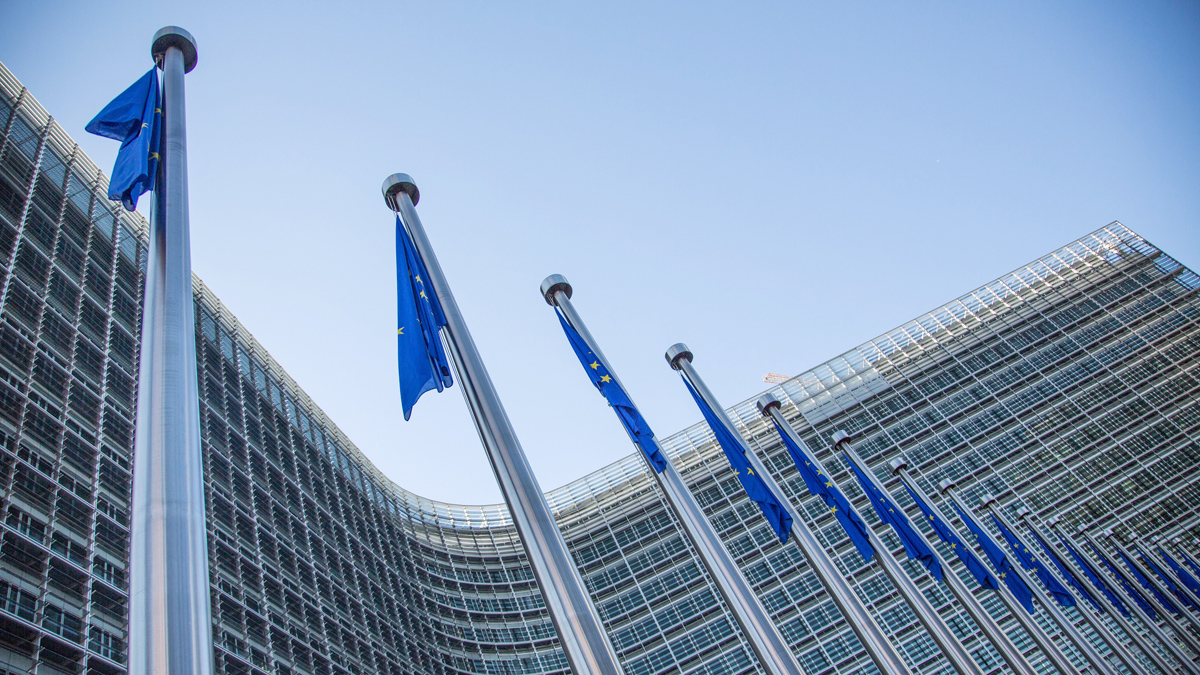European Parliament ends data roaming 'bill shock'
Interim rules will limit surcharges at 3.5p per text message, minute of call or extra megabyte of data

A free daily email with the biggest news stories of the day – and the best features from TheWeek.com
You are now subscribed
Your newsletter sign-up was successful
The European Parliament has voted-in legislation to ban roaming charges across the EU, bringing to an end two years of negotiations.
What are roaming charges?
They are additional fees imposed by mobile phone operators for calls, texts and mobile internet data when phones are used abroad.
The Week
Escape your echo chamber. Get the facts behind the news, plus analysis from multiple perspectives.

Sign up for The Week's Free Newsletters
From our morning news briefing to a weekly Good News Newsletter, get the best of The Week delivered directly to your inbox.
From our morning news briefing to a weekly Good News Newsletter, get the best of The Week delivered directly to your inbox.
In a number of cases, customers have been handed bills for hundreds or even thousands of pounds after inadvertently downloading videos while on holiday. One fifth of UK mobile users travelling to the EU incurred roaming fees last year, collectively paying £573m.
Attempts to curb the charges have been repeatedly blocked by national governments, but now they will be outlawed across the EU.
How will the new changes affect you?
UK mobile phone users who travel within Europe will eventually pay the same prices as they do at home. The total ban roaming charges won't come into effect until 15 June 2017, but from April an interim cap will allow telecoms operators to add no more than 3.5p extra per text, minute of call or extra megabyte of data.
A free daily email with the biggest news stories of the day – and the best features from TheWeek.com
That is a big difference from the current system, under which operators can charge travellers 19 cents a minute for calls, six cents per text message, and 20 cents per megabyte of data on top of their normal tariff. The cap will make roaming within the EU 75 per cent cheaper during the interim period, the BBC says.
Is it all good news?
Critics of the ban say the loss of revenue for mobile phone companies could push up prices across the board, including those charged to non-travellers.
Are there any other changes?
The new rules also include provisions which will prevent operators prioritising domestic internet traffic above overseas visitors, resulting in poor download speeds.
Providers have been afforded concessions that allow them to provide higher-quality connections for specialist pay-for services such as internet television.
Data roaming charges for phones to end in Europe
01 July
UK holidaymakers travelling to Europe will no longer face hefty bills to use the internet on their smartphones, after European authorities finally reached agreement on proposals for a single telecoms market across the continent.
Under new rules announced yesterday by the European Commission after two years of talks, "roaming" charges applied to internet use outside an individual's home country will be abolished within the European Union from June 2017.
From April next year interim measures come into force which will reduce surcharges to five cents (4p) per minute for calls or megabyte of internet data and two cents per text message, which the Commission says reduces the maximum charge by around 75 per cent compared to current caps.
That is a big difference from the current system under which, The Guardian reports, operators can charge travellers 19 cents a minute for calls, six cents per text message, and 20 cents per megabyte of data on top of their normal tariff.
The new rules also include provisions to ensure "net neutrality", which will prevent operators prioritising domestic internet traffic above overseas visitors, resulting in poor download speeds.
The BBC notes there are caveats in place that allow providers to provide higher-quality connections for specialist services such as internet television, so long as this does not compromise the overall quality of traffic for others.
Internet service providers will also be allowed to 'throttle' traffic where this is in the public interest, for example to combat the proliferation of images of child sexual abuse or in the event of a terrorist attack.
The news was generally welcomed, although some bemoaned conditions which "water down" the neutrality proposals.
Ernest Doku of uSwitch.com told website Telecoms.com that as the deal still needs to be approved by the European Parliament there remains a danger of "backtracking". He cited an earlier deal to end roaming charges by 2015, which was subsequently reversed.
-
 Why is the Trump administration talking about ‘Western civilization’?
Why is the Trump administration talking about ‘Western civilization’?Talking Points Rubio says Europe, US bonded by religion and ancestry
-
 Quentin Deranque: a student’s death energizes the French far right
Quentin Deranque: a student’s death energizes the French far rightIN THE SPOTLIGHT Reactions to the violent killing of an ultraconservative activist offer a glimpse at the culture wars roiling France ahead of next year’s elections
-
 Secured vs. unsecured loans: how do they differ and which is better?
Secured vs. unsecured loans: how do they differ and which is better?the explainer They are distinguished by the level of risk and the inclusion of collateral
-
 Brits keeping 21 million ‘money secrets’ from friends and family, survey reveals
Brits keeping 21 million ‘money secrets’ from friends and family, survey revealsSpeed Read Four in ten people admit staying quiet or telling fibs about debts or savings
-
 London renters swap cramped flats for space in suburbia
London renters swap cramped flats for space in suburbiaSpeed Read New figures show tenants are leaving Britain's cities and looking to upsize
-
 Should the mortgage holiday scheme have been extended?
Should the mortgage holiday scheme have been extended?Speed Read Banks warn that some homeowners may struggle to repay additional debt
-
 RBS offers coronavirus mortgage holidays
RBS offers coronavirus mortgage holidaysSpeed Read Taxpayer-owned bank follows measures taken in virus-struck Italy
-
 What are the changes to National Savings payouts?
What are the changes to National Savings payouts?Speed Read National Savings & Investments cuts dividends and prizes for bonds
-
 China clears path to new digital currency
China clears path to new digital currencySpeed Read Unlike other cryptocurrencies, Beijing’s would increase central control of the financial system
-
 Why are donations surging to the RNLI?
Why are donations surging to the RNLI?Speed Read Charity enjoys flood of funding after criticism for overseas work
-
 PPI deadline day: how to claim
PPI deadline day: how to claimSpeed Read Final chance for consumers to apply for compensation